Info
Health Benefits of Dry Fruits and Nuts in Your Daily Diet
Dry fruits and nuts are the powerhouses of fiber and proteins. For the past few years, the consumption of dry fruits and nuts has been increased among adults. Everything needs time to reveal its values.
People started finding nutritious foods to replace their high-carb snacks to fulfill health liabilities and prevent ailments. Eating dried fruits as a part of the diet, snack, after a meal, or as the replacement to other refined products is being followed. It satisfies the craving and gives fullness from kids to adults.
The nuts and dried fruits are high in nutrition, vitamins, proteins, fibers, healthy sugars, and nutrients. Kids who avoid fresh fruits do like dried nuts and fruits.
It can be added to smoothies, oatmeal, yogurt, cereals, and most breakfast meals and gives sweetness and nutty spin to the food.
Unlike fresh fruits, dried fruits are easy to store and carry. You can eat them in the place of candy as they are free of added sugars, sodium, and cholesterol.
Nuts and dried fruits are included in most types of diets by nutritionists. It should be consumed in moderation.
Dry fruit is a dehydrated fresh fruit that loses its moisture content in natural sunlight or dehydrators. They have an almost nutritional profile of fresh fruit.
10 Health of Benefits Dry Fruits and Nuts
The general health benefits of dry fruits and nuts are listed below.
Improve Immunity
The nuts are filled with proteins and minerals while the dry fruits are loaded with essential oils, calcium, magnesium, potassium, phosphorus, zinc, and vitamins like vitamin A, B6, D, E, and K1 which are the minerals that improve immunity power.
Based on a study, dried fruits have polyphenols that improve immunity by implementing their anti-inflammatory activities. The antioxidants present in nuts prevent cell damage and fight back infections.
Weight Loss
A moderate intake of dry fruits and nuts is recommended by professionals to lose weight. As these are low in fat, carbohydrates, cholesterol, sugar, and high in dietary fiber and proteins so it keeps you full for a long time and stops you from eating in between.
In this way the calorie consumption is getting reduced, dietary fiber is getting increased which improves bowel movements. These two are vital for weight loss. Few other studies show that fat in dried fruits is slowly absorbed by our body which minimizes hunger and controls weight gain.
Skin Health
Most of us want to look young. Dried fruits can help you with this. The regular and moderate consumption of nuts helps to keep the skin glowing and radiant. The essential oils and antioxidants prevent free radical damage, oxidative stress, slow down aging and improve regeneration of damaged skin.
Treat Constipation
The dietary fibers, both soluble and insoluble, present in dried fruits help to treat and prevent constipation by adding bulk to stool. It helps to promote bacterial growth in the gut and keeps the gut system healthy.
A recent study showed that dried fruits like Prunes have bifidobacteria which helps to maintain the gut system and improve digestion.
Prevent Cancer
Though there are no evidence-based human studies to prove, almonds and cashew nuts showed a positive impact on breast cancer in a few studies. The phytonutrients and powerful antioxidants prevent cancer cells from developing.
A study proved that intaking dried fruits like prunes, raisins, dates, and figs 3-5 or more servings in a week may help prevent risks of certain cancer types like colon, stomach, bladder, prostate, and pancreatic.
Cardiovascular Health
Dried fruits can effectively reduce cholesterol levels and regulate blood pressure. Most dry fruits are rich in Omega-3 fatty acids which help in reducing the triglyceride levels in the blood and controlling cholesterol. This in return prevents clogging and plaque build-up in arteries.
Dried grapes or Raisins are often recommended to reduce high blood pressure. As it is a common reason for most heart diseases like stroke, it can be taken as a preventive superfood to prevent cardiovascular diseases.
Strengthen Bones
Dry fruits are rich in boron, calcium, magnesium, and vitamin K and are important for strong bones. Nuts also have potassium that prevents calcium loss from the bone.
Manage Stress
Enough studies have proven the benefit of eating dry fruits to fight against stress and depression. It improves memory power and brain functions.
Type-2 Diabetes
An evidence-based study held in 2017 showed a positive interaction between type-2 diabetes and dry fruits. Nuts and dried fruits are best against metabolic diseases. The micronutrients, macronutrients, and plant nutrients are associated with risks of diabetes.
The dietary fiber in nuts can lower sugar levels in the blood and control insulin levels.
Manage Blood Pressure
Magnesium deficiency is the main reason for high blood pressure. It can further lead to major health disorders like kidney failure, heart attacks, and stroke. Dried nuts like almonds are high in magnesium. An ounce (28 g) of almonds carries 76.5 mg of magnesium.
Adding magnesium-rich food to the diet lowers blood pressure in diabetic patients.
List of Popular Dry Fruits and Nuts, Benefits, and Nutritional Value
Here is the list of the most nutritious dry fruits and nuts with their benefits and nutritional value.
1. Almonds (Badam)
Almonds are neither nuts nor fruits. It is rather like seeds covered with a hard flesh of the fruit. Almonds or Badam are highly consumed nuts because of their health benefits.
It is rich in vitamin E, essential oils, and antioxidants which gives benefits from kids to adults. Raw almonds are free from sodium so it helps to regulate high blood pressure. However, it is rich in energy (calories) so people with Type-2 diabetes should eat it in moderation.
It can be eaten raw, roasted, salted, or soaked. The best method of consuming almonds is soaking them for a night and eating in the morning after removing the skin.
The benefits of Almond are,
- It keeps the heart healthy.
- You can maintain a healthy weight by eating almonds.
- It is great for healthy hair and skin health.
- Almonds improve memory.
- It can delay the aging of brain cells.
- Blood sugar levels can be controlled and regulated.
1 ounce (28 grams) of Almonds contains,
- Protein – 6 gm
- Fiber – 4 gm
- Vitamin E – 35% of DV
- Magnesium – 20% of DV
- Calcium – 8% of DV
2. Walnuts (Akhrot)
Walnuts are extracted from the fruits of any tree of the Juglans genus. The fruits are single-seeded and the seeds are edible. Walnuts are rich in Omega-3 fatty acids, minerals, vitamins, proteins, and antioxidants.
The fatty acids reduce unhealthy fat in the body and keep the heart in better conditions. Walnuts have a brain-like shape. Not only that, the nuts have brain sharpening properties in Omega-3 fatty acids so it is considered as brain food.
The benefits of Walnuts are,
- DHA is a form of Omega-3 fatty acids that maintain the brain health of newborns.
- It improves cognitive functions and performance in adults.
- The cognitive declines associated with aging can be prevented.
- It prevents oxidative stress, thus cancer.
- Walnuts are best to reduce and manage stress.
- It gives healthy skin and hair.
1 ounce (28 grams) of Walnut contains,
- Protein – 4.3 gm
- Fiber – 1.9 gm
- Carbs – 3.9 gm
- Fat – 18.5 gm
- Sugar – 0.7 gm
- Calories – 185
3. Cashew (Kaju)
Cashew is a nut or seed taken from the bottom of cashew fruits. The seeds are shelled and have an edible nut. Cashew nuts are high in monounsaturated fats, minerals, fiber, antioxidants, and polyphenols.
In India, Cashew nuts are the highly consumed dried nuts. People eat it raw, roasted or added to food. It has a delicious taste and creamy texture. These nuts have vitamin E, vitamin B6, magnesium, and plant proteins.
The benefits of Cashew nuts are,
- An incredible health benefit of cashew nuts is they can fight off Type-2 diabetes. It lowers blood sugar and maintains blood insulin levels.
- It helps with weight loss.
- Bad cholesterol levels can be reduced by eating cashews.
- It reduces the risk of heart diseases.
- Polyphenols reduce and prevent inflammation.
1 ounce (28 grams) of Cashews (Kaju) contains,
- Protein – 5 gm
- Fiber – 1 gm
- Iron – 11% of DV
- Copper – 67% of DV
- Carbs – 9 gm
- Fat – 12 gm
- Calories – 157
4. Dates (Khajoor)
The dates or date fruits are taken from the palm trees. These are dried in the sun or using a dehydrator.
Dried dates are filled with digestive fiber that gives fullness for a long time and satisfies your cravings. It is rich in iron and maintains overall body conditions.
These naturally have high polyphenols and antioxidants. So eating dates may reverse aging by preventing oxidative stress in the body.
It is a great snacking option for kids and adults. Dates and milk in the morning with breakfast will be fulfilling.
The benefits of Dates are,
- It helps in weight loss.
- Eating dates may improve iron levels, increase hemoglobin levels, therefore, it prevents anemia.
- The dates give you energy.
- It maintains and improves gut health.
A date contains,
- Protein – 0.2 gm
- Fiber – 0.6 gm
- Sodium – 0.14 mg
- Carbs – 5.3 gm
- Calories – 20
5. Apricots (Khumani)
Apricot is a fruit that is dried and sold. It reduces hunger by filling your tummy with essential nutrients like vitamin A, vitamin E, copper, and magnesium. The antioxidants present in apricots fight infections and organ damages or failure.
The benefits of Apricots are,
- It improves vision and is good for eye health.
- This dried fruit strengthens bones and makes skin healthy.
- It also helps in weight loss.
1.2 ounces (35 grams) of Fresh Apricots contains,
- Protein – 0.49 gm
- Fiber – 0.7 gm
- Calories – 16.8
- Vitamin A – 33.6 mcg
- Beta carotene – 383 mcg
- Carbs – 3.89 gm
- Fat – 0.14 gm
6. Raisins (Dried Grapes)
Raisins are dried grapes and have wrinkles. Based on the grape variety, there are 5 to 6 different types of raisin available. They have different colors, tastes, and textures. Most types have sour and sweet tastes. These are dried in the sun or microwave.
Raisins are high in iron and treat anemia. The raisins also improve digestion, prevent constipation, and treat acidity.
The benefits of Raisins (Dried Grapes) are,
- Eating soaked raisins in the morning gives energy for the day and it treats tastelessness.
- It also improves blood thickness.
- A tasty treat that fulfills your cravings for sweetness and hunger.
1 ounce (28 grams) of Raisin contains,
- Protein – 0.5 gm
- Fiber – 0.6 gm
- Sodium – 3.6 gm
- Carbs – 11 gm
- Sugar – 9.1 gm
- Calories – 42
7. Pistachio (Pista)
Pistachio is a member of the cashew family. It is a seed extracted from the trees and yellow or green with a heart shape. People who feel hunger often can consume pistachios. It suppresses your hunger and feeds you for a long time.
The presence of vitamin E, vitamin A, vitamin B6, oleic acid, carotenes, antioxidants, copper, magnesium, manganese, calcium, iron, zinc, and selenium with polyphenolic antioxidant and anti-inflammatory activity benefits in many ways
The benefits of Pistachios are,
- Pista nuts help in preventing the risks of diabetes.
- The nuts can lower bad cholesterol levels (LDL).
- It gives energy for the day.
- Vitamin B6 increases hemoglobin in the blood.
- Vitamin A or carotenoid helps to improve eyesight.
1 ounce (28 grams) of Pistachio contains,
- Protein – 5.72 gm
- Fiber – 3 gm
- Carbs – 7.7 gm
- Fat – 12.85 gm
- Calories – 159
8. Hazelnuts
Hazelnuts are fruits of the Hazel tree from the genus Corylus. These are high in fat, vitamins, protein, and minerals. It has a nutty, sweet, and crunchy flavor that can be eaten raw, roasted, or pasted.
The pasted hazelnut is added to chocolate products like spreads and dips. The popular Nutella chocolate spread included hazelnuts.
The benefits of Hazelnuts are,
- The antioxidants in hazelnuts prevent cell damage.
- It can lower bad cholesterol levels.
- The insulin sensitivity in the blood can be improved.
- It supports weight loss and heart functions.
- Hazelnuts increase low-density lipoprotein levels.
1 ounce (28 grams) of Hazelnut contains,
- Protein – 4.2 gm
- Fiber – 2.7 gm
- Copper – 24% of DV
- Magnesium – 12% of DV
- Manganese – 87% of DV
- Vitamin E – 21% of DV
- Carbs – 4.7 gm
- Fat – 17 gm
- Calories – 176
9. Prunes
Prune is the dried fruit of European plum. Only a few varieties of plum species can be dried to prunes. It is nutritious and has many health benefits. Prunes have high sugars so they will satisfy your sweet cravings and improve nutritional values in the body.
The benefits of Prunes are,
- The presence of iron gives strength.
- To build up muscles and strengthen bones, prunes are best.
- It reduces cholesterol levels.
- The blood pressure can be managed.
1 ounce (28 grams) of Prunes contains,
- Fiber – 2 gm
- Vitamin A – 4% of DV
- Vitamin K – 21% of DV
- Vitamin B2, B3, B6 – 3% of DV
- Carbs – 18 gm
- Sugars – 11 gm
- Calories – 67
10. Dried Figs (Anjeer)
Figs are edible fruits of the Ficus carica tree. It can be eaten fresh and dried. It is a fruit that has green or purple skin with hundreds of small seeds. The flesh of the fruit is sweet, mild, and high in nutrients.
The figs are used to treat problems associated with respiratory and reproductive systems. It is high in sugar and has a crunchy flavor. Figs have both soluble and insoluble dietary fiber so it helps in gut health. Figs can be consumed with milk in the morning for breakfast.
The benefits of Dried Figs are,
- Figs strengthen bones.
- It prevents cancer cell growth.
- The blood pressure can be controlled.
- It helps in weight loss.
- Figs treat constipation, improve bowel movements, and cure gastric disorders.
3.5 ounces (100 grams) of Dried figs contain,
- Protein – 3.3 gm
- Dietary fiber – 9.8 gm
- Iron – 2.03 mg
- Magnesium – 68 mg
- Calcium – 162 mg
- Vitamin C – 1.2 mg
- Beta-Carotene – 6 mcg
- Calories – 249
11. Fox Nuts (Makhana)
Fox nuts or makhana are taken from Euryale fox which is commonly called Prickly water lily. These are plucked out from the lotus flowers so in India it is called lotus seeds. The seeds are dried and fried or popped like corn. The taste is moreover like popcorn.
It is an excellent tea-time snack in the evening. Makhana or roasted lotus seeds not only happify your tastebuds but also healthify your body.
The benefits of Makhana are,
- Lotus seeds are low in glycemic index and high in protein so they keep you full for a long time and thus prevent weight gain.
- The proteins of the lotus seeds boost metabolism.
- Lotus seeds have two trace minerals; Potassium and Magnesium that are important for heart health.
3.5 ounces (100 grams) of Fox nuts or makhana contains,
- Protein – 9.7 gm
- Carbs – 77 gm
- Dietary fiber – 7.6 gm
- Calcium – 60 mg
- Iron – 1.4 mg
- Potassium – 500 mg
- Calories – 350
Dried Berries
Berries are small and pulpy edible fruits. Typically, berries have bright colors, sweet, tart, or sweet taste. These are rich in Vitamin C, fiber, and antioxidants. Eating berries can prevent chronic diseases and improve heart health.
1. Dried Gooseberry
Gooseberry or Amla is a small fruit that has sweet, tart, bitter, and sour tastes. It has iron, vitamins, protein, calcium, and copper with many additional health-benefiting properties like antioxidant, antistress, and anti-aging.
The benefits of Gooseberry are,
- Amla enhances hair growth and energy.
- It improves eyesight and vision.
- Amla juice provides you with glowing skin.
- Amla extract or juice relieves stress.
- Gooseberry slows aging and prevents premature aging.
- It promotes digestion.
One cup (150 grams) of gooseberries contains,
- Calories – 66
- Protein – 1 gm
- Fat – Less than 1 gm
- Carbs – 15 gm
- Fiber – 7 gm
- Vitamin C – 46% of the DV
- Vitamin B5 – 9% of the DV
- Vitamin B6 – 7% of the DV
- Copper – 12% of the DV
- Manganese – 9% of the DV
- Potassium – 6% of the DV
2. Dried Goji berries
Goji Berry or Tibetan goji is bright red or orange-colored. The fruit has sweet and sour tastes. It is native to China but also found in Asian countries and European regions. It has vitamin A, vitamin C, fiber, iron, and zinc. It fulfills 10% of the DV of proteins.
The benefits of Gojiberry are,
- Goji has powerful antioxidants. It prevents free radical damage to healthy body cells.
- It prevents collagen damage in the skin thus fighting against aging.
- This berry can control blood sugar levels.
- Berry juice improves energy and reduces recovery time.
1 ounce (28 grams) of Goji berries contains,
- Calories – 98
- Carbohydrate – 21.6 gm
- Fiber – 3.6 gm
- Sugar – 12.8 gm
- Fat – 291 mg
- Protein – 4 gm
- Selenium – 25% of the DV
- Vitamin C – 23% of the DV
- Riboflavin – 21% of the DV
- Iron – 5% of the DV
- Calcium – 5% of the DV
- Vitamin A – 150% of the DV
- Copper – 28% of the DV
3. Dried Strawberries
Strawberry is an edible fruit from the genus Fragaria. This berry is rich red-colored and has a sweet and sour taste. It is a rich source of vitamin C and manganese. It is added to juice, chocolates, pies, and milkshakes. The flavor of this berry is most loved by kids to adults.
The benefits of Strawberries are,
- Strawberry boosts memory and improves immunity power.
- It has powerful antioxidants that reverse aging.
- It helps to prevent the risks of strokes.
- Strawberries improve heart health.
3.5 ounces (100 grams) of Strawberry contains,
- Calories – 33
- Fat – 0.3 gm
- Potassium – 153 mg
- Carbs – 8 gm
- Protein – 0.7 gm
- Sugar 4.9 gm
- Vitamin C – 97% of the DV
- Iron – 2% of the DV
- Magnesium – 3% of the DV
4. Dried Blueberries
Blueberries are taken from perennial plants that have blue or purple berries. It has nutrients and vitamins like vitamin A, B, C, E, K, iron, fiber, folic acid, potassium, tannins, manganese, phosphorus, calcium, copper, and zinc.
The benefits of blueberries are,
- Blueberries may reduce blood pressure and bad cholesterol.
- The less sodium and calorie content of blueberries helps in weight loss.
- The anti-inflammatory properties treat inflammation internal and external.
- It improves memory and heart health.
3.5 ounces (100 grams) of blueberries contain,
- Carbs – 14.5 gm
- Sugars – 9.96 gm
- Fiber – 2.4 gm
- Protein – 0.7 gm
- Fat – 0.4 gm
- Potassium – 77 mg
- Phosphorus – 12 mg
- Calcium – 6 mg
- Magnesium – 6 mg
- Choline – 6 mg
- Vitamin A – 54 IU
- Vitamin C – 9.7 mg
- Vitamin E – 0.57 mg
- Vitamin K – 19.3 mcg
5. Dried Cranberries
Cranberries are taken from trailing vines or shrubs of the genus Vaccinium. These are small, hard, round, and red-colored with a sour and bitter flavor often added to sauces and juices.
It has antioxidants like flavonoids, phenolic acids, anthocyanin, and proanthocyanidins.
The benefits of Cranberries are,
- Cranberries have ursolic acid that supports the body’s immunity to fight inflammation.
- Dried cranberries may reduce Type 2 diabetes conditions.
- It prevents urinary tract infections and kidney stones.
A 1/4 cup (40 grams) of Dried Cranberries contain,
- Calories – 92
- Fat – 0
- Carbs – 25 gm
- Fiber – 2 gm
- Sugar – 22 gm
- Sodium – 2 mg
- Protein – 0.1 g
Dried Seeds
Not only do the fruits and nuts have nutritional values but also the seeds are filled with vitamins, proteins, and minerals. These are eaten raw, roasted, or added to drinks.
Adding seeds to the diet may reduce cholesterol, blood sugar, and blood pressure.
1. Flax seeds
Flax seeds or Linseeds are from the Linaceae family. It can be added to curd, salads, smoothies, and breakfast cereals. The dried or roasted flax seeds have omega-3 fatty acids and fiber.
The benefits of Flaxseeds are,
- Flax seeds are cholesterol-free and good for health.
- It prevents indigestion and constipation.
- Linseed is beneficial for women’s health.
- Flax seeds reduce menopausal symptoms and reduce anxiety.
3.5 ounces (100 grams) of flax seeds contain,
- Calories – 534
- Fat – 42 gm
- Sodium – 30 mg
- Potassium – 813 mg
- Carbs – 29 gm
- Protein – 18 gm
- Vitamin B6 – 25% of the DV
- Magnesium – 98% of the DV
- Iron – 31% of the DV
- Calcium – 25% of the DV
2. Muskmelon seeds (Kharbuja)
Muskmelon seeds are extracted from Muskmelon or Cantaloupe fruit which is a summer fruit that has sweet flesh. Muskmelon seeds have nutrients and healthy constituents.
The seeds are a great alternative to protein for vegans which is equal to the protein in soy milk.
It has vitamin A, vitamin C, and vitamin E.
The benefits of Muskmelon seeds are,
- It keeps the blood pressure levels in check.
- Melon seeds improve strength and bone density.
- The seeds help in eyesight and vision.
- The antioxidants prevent macular damage in the eyes.
3.5 ounces (100 grams) of muskmelon seeds contain,
- Calories – 34
- Carbs – 8.6 gm
- Protein – 0.84 gm
- Fat – 0.19 gm
- Cholesterol – 0 mg
- Dietary Fiber – 0.9 gm
- Vitamin A – 112% of the DV
- Vitamin C – 61% of the DV
- Vitamin E – 0.5% of the DV
- Vitamin K – 2% of the DV
3. Watermelon seeds
Watermelons are from the Cucurbitaceae family. In a fully ripe watermelon, there are 300 to 500 seeds available. The seeds have nutrients like vitamin B, zinc, potassium, and magnesium. There are traces of fats and proteins also.
The benefits of Watermelon seeds are,
- Raw watermelon seeds are best for digestion problems.
- Citrulline, an amino acid, helps relax and dilate blood vessels.
- Roasted melon seeds may improve skin health.
- Melon seeds may also regulate blood sugar levels and reduce insulin resistance.
1 cup of dried watermelon seeds contains,
- Protein – 30.6 gm
- Fat – 51.16 gm
- Carbs – 16.53 gm
- Calories – 601.56
- Calcium – 58.32 mg
- Iron – 7.86 mg
- Magnesium – 556.2 mg
- Phosphorus – 815 mg
- Potassium – 699.8 mg
- Sodium – 106 mg
- Zinc – 11 mg
- Copper – 0.74 mg
Other Uncommon Dried Fruits
Other than dates and grapes, many fresh fruits are dried and consumed for their benefit. These are not often sold in stores so some of you may not know that these are available. Let’s see them.
1. Dried Tomatoes
Sun-dried tomatoes are high in antioxidants that are 12 times higher than raw tomatoes. The dried tomatoes are also high in minerals and vitamins.
The benefits of sun-dried tomatoes are,
- Lycopene, an antioxidant in dried tomatoes may protect skin from harmful sun rays.
- The antioxidants prevent free radical damage and may lower the risks of cancer and chronic conditions like diabetes.
- It can regulate blood circulation actively.
- The fiber content in dried tomatoes prevents and treats constipation.
How to consume?
Added to pizza toppings, sandwiches, soups, salads, and pasta recipes.
2. Dried Malwa nuts
Malwa is great to cool down the body in the summer. It gives energy and nutrition also.
The fresh malwa fruits have been used in medicine and culinary applications.
The benefits of dried malwa are,
- The malwa fruit or often called Malva nuts are well known for their cooling properties. So, it is good for reducing body heat.
- The nuts can treat cold, cough, fever, sinus due to high temperature.
- Malwa may treat irritable bowel syndrome.
- The dried malwa fruits can cure pneumonia and insomnia.
How to consume?
- Malwa nuts are often consumed by soaking in water.
- Removing the peel of the nut is your choice based on your taste.
- To prepare Malva tea, add the seeds to boiling water. Steep, let it cool for a minute then strain and drink. It cools down the body and treats inflammation in piles.
3. Dried Salep orchid or salab misri
Salep orchid or salab misri is a herbal fruit that has many benefits for men’s health. It is a powerhouse of antioxidants that increases immunity and keeps you active.
The benefits of dried salep orchid are,
- It cures low sperm count, impotence, insufficient erection, and infertility in men.
- Salab Misri may treat intestine conditions like recurrent diarrhea, chronic diarrhea.
- It improves digestion and prevents constipation.
- Astringent in Salab Misri helps in treating acne.
How to consume?
- Salab misri can be eaten raw, dried, or soaked in water.
- Men are recommended to eat salab misri fruit with honey to boost energy.
4. Dried Lemon
Sun-dried lemons are an excellent snack with a sweet and tart twist in taste. It has vitamin C, vitamin B-complex, citric acid, iron, flavonoids, calcium, magnesium, copper, phosphorus, potassium, and fiber.
The benefits of dried lemon are,
- Dried lemon is a good blood purifier and it also controls blood pressure.
- It improves bone strength and weight loss.
- The immunity and energy also improved after eating a lemon.
How to consume?
- It can be added to lemonade and teas.
- The dried lemon slices can be added to baked foods, rice dishes, salads, and drinks.
5. Dried Coconut or dry copra
Dried coconut or copra has a wide range of minerals that are easy for the body to absorb and digest.
The dry coconut has 50% meat and 40% oil.
The benefits of dried coconut are,
- Dried coconut improves connective tissues in skin, bones, ligaments, and tendons.
- It is also good for brain development and functions.
- The dry coconut may reduce bad cholesterol levels (LDL) and good cholesterol levels (HDL).
- It is good for heart health as it may strengthen arteries.
How to consume?
- It can be ground and added as masala to curries.
- The dried coconut paste can be added to gravies.
- In India, dried coconut is the most important ingredient in most of the spicy blends for rice dishes.
6. Dried Kiwi fruit
Dried kiwi has lots of minerals, vitamins, and fiber. It is a great snack and sweetener to drink. It has sugar, protein, magnesium, calcium, copper, vitamin C, vitamin K, vitamin E, potassium, and iron.
The benefits of dried kiwi are,
- The fruit has powerful antioxidants and vitamin C that prevent chronic conditions and also treat asthma.
- It helps to protect the cardiovascular system and respiratory systems.
- The dietary fiber in the fruit promotes digestion.
- Kiwi fruit removes excess sodium from the body.
How to consume?
- Like dried lemon, it can also be added to juices and drinks.
- It can be eaten raw as a snack.
- Also added to fruit salads and as toppings to ice creams.
7. Dried Pineapple fruit
Dried pineapple slices are an excellent snack for sugar cravings. The dry fruit is crispy, chewy, sweet, and tart. It has 17% of the daily value of vitamin C. It has high energy, sugars, and traces of fat, dietary fiber, protein, and minerals like potassium, vitamin A, vitamin C, iron, and calcium.
The benefits of dried pineapple are,
- Dried pineapple satisfies your sugar craving without affecting your health.
- It provides 76% of the daily recommendation of manganese.
- The dry fruit keeps the metabolism in check and reduces chronic conditions.
How to consume?
- Dried pineapple is a healthy snack for any time of the day.
- It can be chopped and added to ice cream.
- The coarsely ground dried pineapple can be added slushes.
- You can add dried pineapple powder to juices for sweetness.
8. Dried Mango fruit
Dried mango is also a sweet snack that has a crunchy texture. It has soluble and insoluble fiber that helps to maintain blood sugar levels. The presence of assorted minerals and vitamins in dried mango keeps you full and healthy.
The benefits of dried mango are,
- Dry mango has sodium, glucose, and fiber.
- Vitamin C in dry mang keeps skin and hair healthy.
- The B-complex vitamin increases energy in the body and reduces stress.
- It maintains the metabolism of the body.
How to consume?
- The dried mango slices can be added to fresh fruit juices and salads.
- The chopped dry mango has been added to ice cream as toppings.
- You can the finely chopped dried mango slices to bread spreads and jams.
9. Dried Papaya fruit
Dried papaya is filled with fiber, vitamin C, and powerful antioxidants. It also contains vitamin A, soluble fiber, vitamin B, copper, magnesium, calcium, and iron.
The benefits of dried papaya are,
- Calories in the dried papaya give energy and reduce body heat.
- It helps to gain weight.
- Papaya has natural sugar which is great for diabetic patients.
- Vitamin A improves eyesight and vision.
How to consume?
- Dried papaya can be frozen and added to juices.
- It can be sliced and added to bread filling for a healthy yet yummy breakfast.
- It can be smashed and added to slushes.
10. Dried Guava fruit
Dried guava is often used in Chinese and American cuisine. It has a rich amount of fiber and vitamin C so it helps skin health. The dry guava also has proteins and vitamin E.
The benefits of dried guava are,
- It is great for weight loss.
- Dried guava may improve blood sugar levels in diabetes.
- Vitamin C in guava is two times more than what is in orange.
- Guava helps in maintaining the immune system.
- It helps to reduce thyroid issues.
How to consume?
- Dried guava can be eaten raw as it has sweetness.
- It can be candied with sugar.
- Toasted dried guava with honey goes well with ice creams.
Additional Nutrients Present in Dry fruits and Nuts
Let’s see the added nutrients and benefits that we get from each nut and dry fruit possibly.
| NUTRIENTS | DRY FRUITS & NUTS | BENEFITS |
|---|---|---|
| Protein | Peanut | Helps in weight gain. |
| Fiber | Dried apples, Dried Bananas, Dried Fig, Peanuts | Prevent diabetes, heart diseases. Control weight gain. Improve digestion. |
| Vitamin B6 | Dried Banana | Prevent anemia. Reduce high cholesterol. |
| Vitamin E | Peanuts, Pine nuts | Prevent later-stage pregnancy problems because of hypertension. |
| Vitamin K | Pine nuts | Normalize blood clotting. Gives proteins to bones. |
| Iron | Dried Figs | Prevents anemia. |
| Zinc | Pine nuts | Improve immunity. Helps in fetus development like organs, nerves, skeleton, and circulatory system. |
| Copper | Pine nuts | Help to use iron in the body. Supports the smooth work of organs and muscles. |
| Manganese | Peanuts | Strengthens bones. Manage mother and baby weight. |
| Magnesium | Dried Bananas, Pine Nuts | Great for bones, nerve functions, and muscles. Improve bowel movements. |
| Phosphorus | Peanuts | Helps in bone formation. Normal heartbeat. |
| Calcium | Dried Fig | Reduces risks of pre-eclampsia during pregnancy. Helps in stronger bones, muscles, teeth, and healthy nerves in the baby. |
| Potassium | Dried apples, Dried bananas | Regulates blood pressure. Improve muscle. |
Dose and Side Effects
Dry fruits and nuts have minerals, fiber, fat, and many other nutrients. Still, it may cause side effects if you did not consume in moderation or within the recommended dosage.
People who are allergic to nuts and dried fruits should not think of trying even a piece without consulting their healthcare provider.
The possible side effects caused by consuming dry fruits and nuts without a proper diet plan are throat inflammation, swelling, breathing difficulties, sneezing, hives, and sometimes severe effects are also possible like unhealthy weight gain, peak in cholesterol levels, blood sugar levels, and blood pressure levels. It is because dried fruits have high fat, calories, sugar, and fiber.
Also, eating many nuts in one sitting can create irregularities in the intestines like diarrhea, gas, indigestion, and bloating.
Dietary Guidelines recommend a daily serving of 30 grams of nuts. It may be any one of the following nut types.
- Almonds: 20 – 30
- Cashews Nuts: 15
- Hazelnuts: 20
- Peanuts: 40
- Pistachios: 30
- Walnuts: 10 (whole)
How to Buy Dry Fruits and Nuts
Dry fruits and nuts have proteins, calories, and energy. But some processed or filtered products in stores may have added preservatives and sugar. They may also have additional calories and fat. So be mindful while buying dry fruits and nuts in stores.
We in Moolihai.com offer raw, salted, and roasted dry fruits and nuts without any added preservatives, sugar, fat, and calories. You can buy the rare nuts varieties like Pine Nuts, Chestnut, Brazil nuts, and Pecan nuts at the best prices with us.
Our products are 100% naturally harvested, stored, and packed without losing their nutrients and nature.
Read also: Health benefits of Pine Nuts, Health Benefits of Brazil Nuts
Dried Fruits and Nuts: FAQs
How many dry fruits and nuts are safe for a day?
To obtain the maximum energy and benefits of dry fruits, you can consume 5 to 7 pieces in a day consecutively. The regular consumption of small quantities of dry fruits can provide expected nutrition to the body.
Which dry fruit and nuts are best for weight reduction?
To speed up the weight reduction process in a healthy way, add walnuts, dates, raisins, prunes, hazelnuts, and apricots to the daily diet in moderate quantities.
Which dry fruit and nuts are best for weight gain?
To speed up the weight gain process in a healthy way, add almonds, cashew nuts, sunflower seeds, pumpkin seeds, and pecans to the daily diet in moderate quantities.
How to consume Figs (Anjeer)?
The best way to eat figs is by soaking in water for a night. Take 1 or 2 figs and soak them in half a cup of water for a night. In the morning, eat the soaked figs on an empty stomach. You can soak figs with almonds and walnuts and eat them together.
Which dry fruit and nuts are best for hair growth?
Almonds and walnuts have a high amount of protein, vitamin E, and iron that help to strengthen the hair from roots and stop hair loss. To improve hair growth, consume dates and figs regularly as these are high in iron.
Which dry fruit and nuts are best for skin health?
Dried figs are beneficial for skin health. The fruits are rich in essential minerals for skin like calcium, iron, magnesium, Vitamin B6, and Vitamin K. Figs prevent overproduction of sebum and skin dehydration.
Is dry fruit and nuts safe to eat at night?
The best time to eat dry fruits and nuts is in the morning on an empty stomach after soaking them for a night. Mostly, dry fruits and nuts are recommended to eat at night.
Which dry fruit and nuts are best consumed daily?
If you are not under any medication or don’t have allergies or suffer from chronic conditions, all the dried fruits and nuts are safe to consume daily in moderation. As per trusted sources, a healthy person who doesn’t have the above-mentioned issues can consume up to 30 grams of dried fruits and nuts in a day.
Which dry fruit and nuts are good for kids?
As per resources, raisins or dried grapes are great options for kids. Raisins are a rich source of iron, magnesium, copper, phosphorus, and many essential nutrients for their growth and wellbeing. Walnuts have nutrients to support brain development so they can be given to kids.
When can I give dry fruit and nuts to my child?
It is not recommended to give dried fruits and nuts to children who are under 6 months. You can add dry fruits and nuts to their morning or afternoon meals or as an evening snack after the child is 8 to 9 months old. Dry fruits and nuts are best consumed with milk for children. For further clarification or doubts, don’t hesitate to consult your pediatrician.
Which dry fruit and nuts are good for expecting women?
Cashew nuts have essential proteins and minerals like zinc which are important for fetal growth. Apricots and figs may help in digestion during pregnancy. An excellent source of iron and fiber in raisins may prevent anemia. Pistachios and dates may help in reducing fatigue and muscle weakness during pregnancy. However, consult your healthcare provider before adding them to your diet.
Which dry fruit and nuts should be avoided during pregnancy?
As said already, it is a must to consult a doctor before changing your diet plan during pregnancy. Though all dry fruits and nuts have nutrients and minerals, you should take or avoid them based on your need and body conditions. For example, raisins and dates are filled with iron that prevents anemia but if you have gestational diabetes, you should not consume raisins and dates as they can cause peaks in sugar levels.
Which dry fruit and nuts are good for diabetes?
Cashew nuts have healthy unsaturated fats which can lower and regulate sugar levels. So, cashews are good for Type-2 diabetes.
Which dry fruit and nuts should be avoided by diabetic patients?
People with diabetes should avoid dried fruits and nuts which are high in sugars. Though it is natural sugar, it may increase blood sugar levels. Cranberries and raisins comparatively have high natural sugars.
Which dry fruit or nuts are good for nutrition?
Protein and minerals are important nutrients that our body needs. Almonds are high in those, it has nutrients such as potassium, magnesium, iron, and calcium. So, almonds are considered the most nutritional nuts.
Which dry fruit or nuts are good for protein?
Comparatively, almonds, cashews, walnuts, pistachios, and peanuts are high in natural proteins. They satisfy almost 20% of the daily requirement of protein.
Conclusion
The health benefits of dry fruits and nuts are high for everyone from kids, adults, elderly, pregnant women to lactating mothers.
It is a must that we consume them in moderation. Dried fruits, nuts, and seeds are mostly high in nutrition, fat, carbs, fiber, and sugars. So, those who have health complaints associated with these nutrients should consult a doctor before including them in the diet.
Dried fruits and nuts can be either good or bad based on how you eat them and your current health requirements.
It is best to contact a nutritionist for a better diet plan including dry fruits, nuts, and seeds.


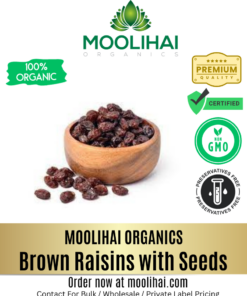

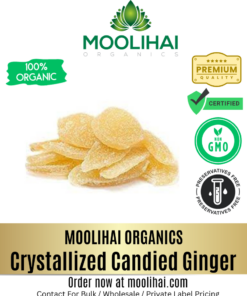

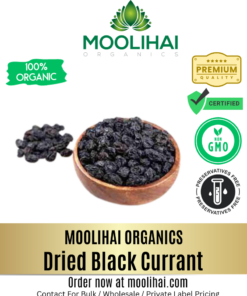

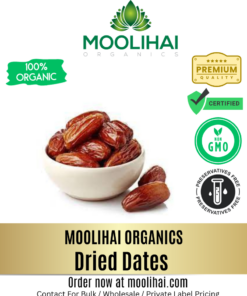

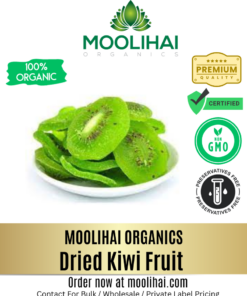

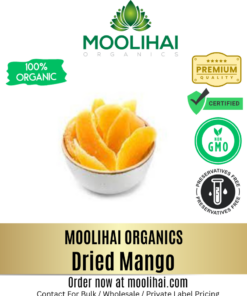

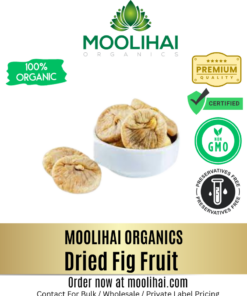

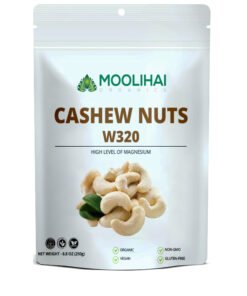

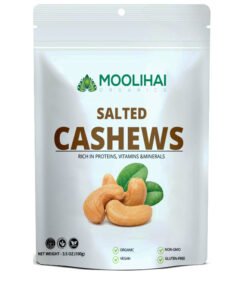

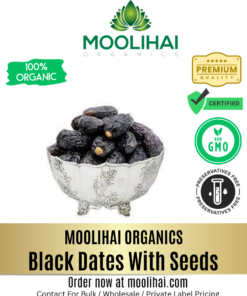

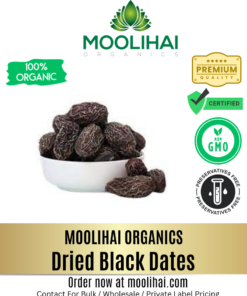

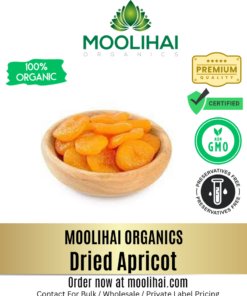

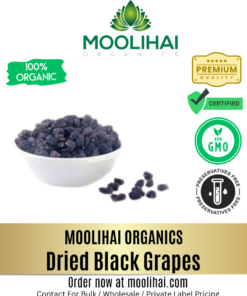

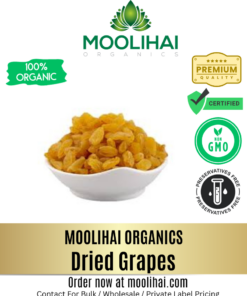

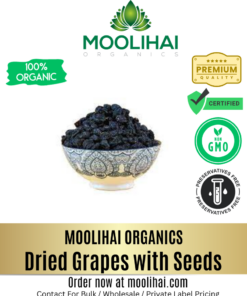

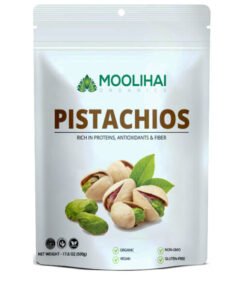



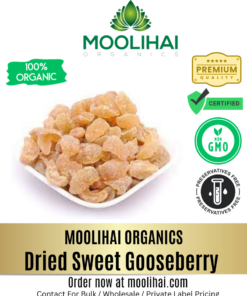

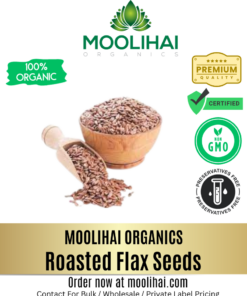

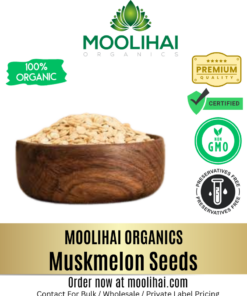

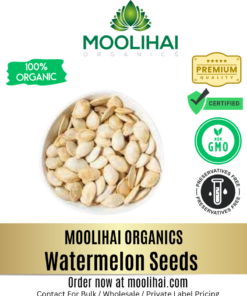

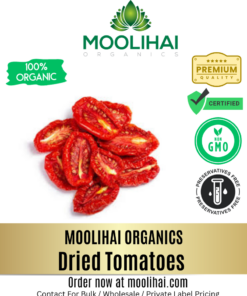

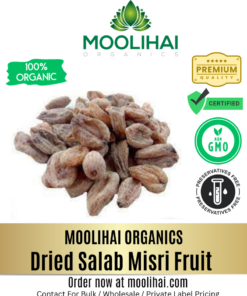

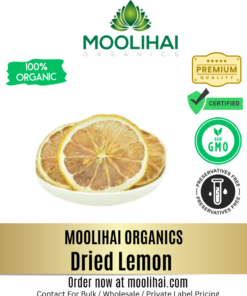

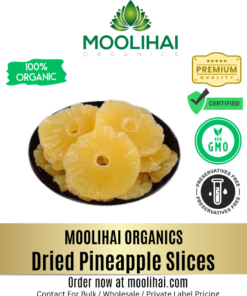

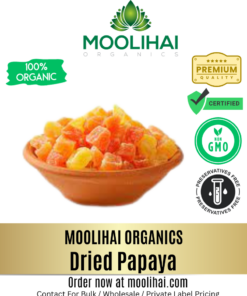

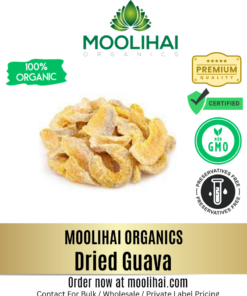

Ponnatharam Stone (Raw) | For Permanent Hair Removal
Vengai Paal | Black Bindi | Dhrishti Pottu | Vengai Pottu for Babies | 100% Natural
Dried Avaram Senna Flower / Cassia Senna Auriculata / Aavaram Poo / Tarwar / Amaltas Leaves / Senna Auriculata / Avaram Poo / Sanay / Alexandrina / Tanner’s Cassia flower
Natural Dried Moringa Flower – Moringa Oleifera – Drumstick Tree Flower – Murungai Poo – Munagaku Flower
Akasa Garudan Kilangu / Redfruit Creeper / Corallocarpus Epigaeus
Original Edible Camphor | Pacha Karpooram | Bhimseni Camphor
Pure Ponnatharam Powder For Hair Removal
Saussurea Obvallata Seeds / Brahmakamal Seeds / Queen of the night / Sacred Saussurea Kon Kapfu / Brahma Kamalam / Nishagandha
Insulin Leaf Powder / Chamaecostus Cuspidatus / Costus Pictus / Spiral Ginger / Insulin Powder / Costus Igneus
Kaunch Beej Powder |Poonaikali | Velvet Bean Powder | Mucuna Pruriens | Kapikacchu | Natural Nervine Tonic & Muscle Builder
Achu Pottu for Babies | Bindi Mould Set | Baby Seratta – 1 Set
Aalam Pazham / Banyan Fruit Powder / Ficus Benghalensis / Marri Palu / Bargad / Dodda Alada Mara / Peraal / Vat Vriksha Powder